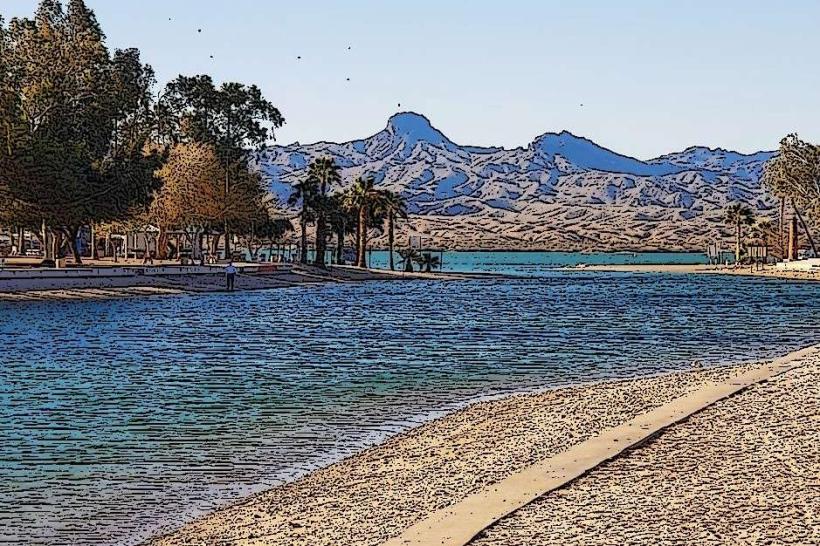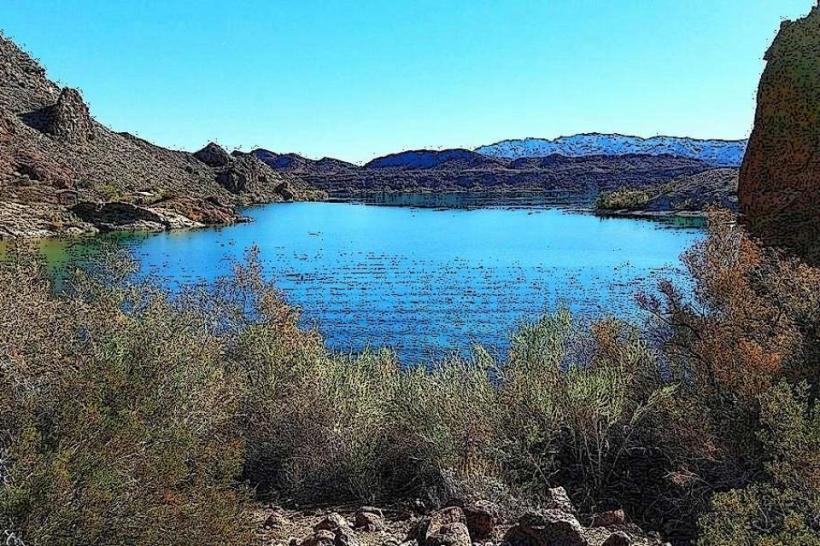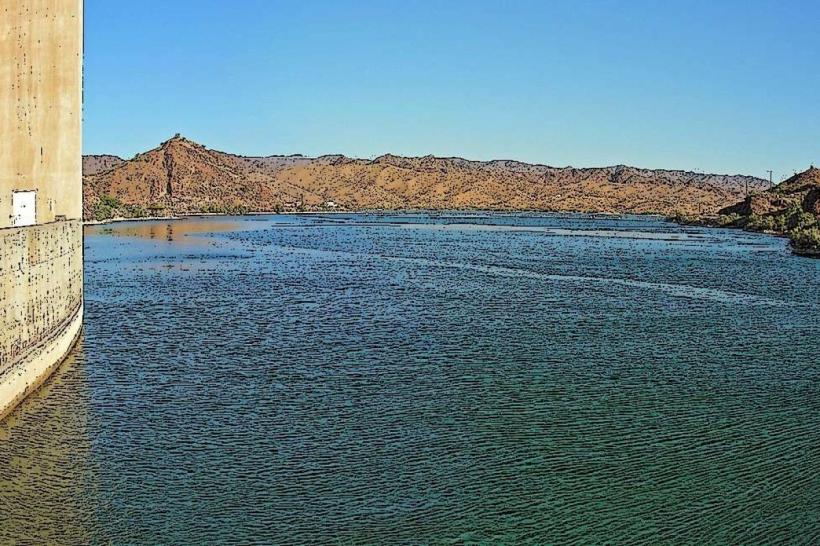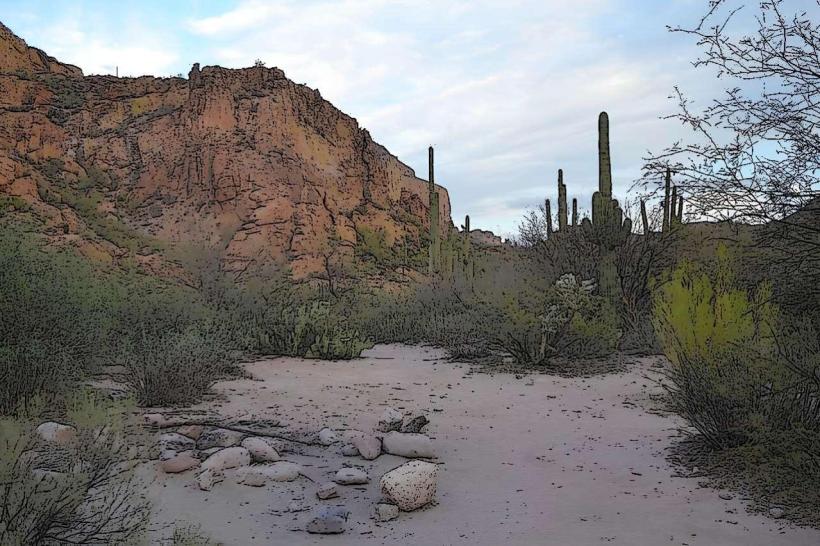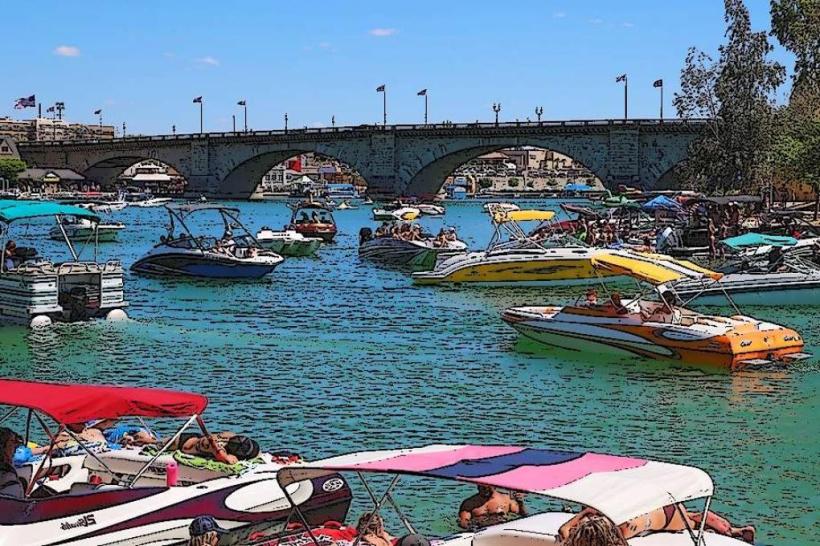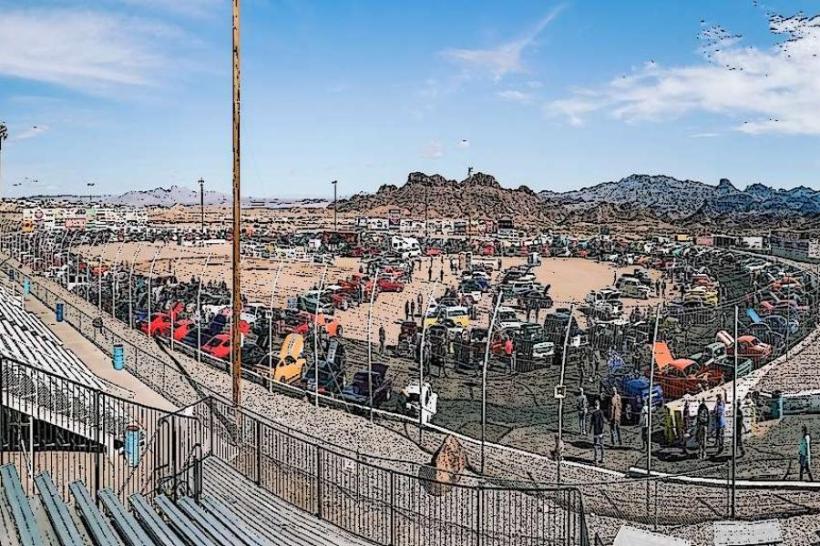Information
Landmark: Havasu National Wildlife RefugeCity: Lake Havasu City
Country: USA Arizona
Continent: North America
Havasu National Wildlife Refuge, Lake Havasu City, USA Arizona, North America
Overview
Havasu National Wildlife Refuge stretches along the lower Colorado River, where Arizona meets California, protecting a vital expanse of desert and water alive with herons and cattails, in conjunction with spanning about 37,515 acres, it was founded in 1941 to protect key habitats for migratory birds and native wildlife along the Pacific Flyway-a major north-south route where flocks sweep over America each year.I think, The refuge spans about 30 miles along the river, wrapping around nearly 300 miles of shoreline where cattails sway in the breeze, at the same time it sits between Needles, California, and Lake Havasu City, Arizona, tracing the Colorado River as it winds past sun-baked cliffs and stretches of wind-polished sand.The land shifts from winding riverbanks to marshy flats, then stretches into dry desert, with broad wetlands, glinting channels, and canyons carved deep into the rock, in conjunction with natural Features Topock Gorge: This breathtaking 20-mile stretch of the Colorado River winds through sheer red cliffs inside the refuge.Mostly untouched, it can only be reached by boat, where clear water mirrors towering canyon walls, ancient petroglyphs etched into stone, and the flicker of wildlife along the shore, besides the gorge is one of the few places left where the river runs wild, its banks lined with untangled roots and quiet water untouched by development.Beal Lake, a 250-acre stretch of calm blue water linked to Topock Marsh, provides vital shelter for endangered native fish like the razorback sucker and the bonytail chub, moreover calm waters ripple across the lake, framed by lush wetlands where herons stalk the shallows-perfect for spotting birds and watching aquatic life.Mesquite Bay sits just outside Lake Havasu City, inside the refuge, with easy walking trails and floating docks where you can watch herons glide across the water, in conjunction with castle Rock is a striking outcrop with a quick loop trail that opens onto wide views of Lake Havasu and the Colorado River, where you might spot waterfowl or grebes gliding across the water.The rocky ground here shelters creatures built for the desert, like lizards darting between sun‑baked stones, simultaneously havasu National Wildlife Refuge teems with life, from darting lizards to the vibrant flocks that draw birdwatchers from miles away.More than 318 bird species find vital places to rest, feed, and breed here, from quiet reed beds to busy shoreline perches, drawing birdwatchers from everywhere, consequently western and Clark’s Grebes-sleek water birds with sharp black-and-white plumage-are best known for their elaborate courtship dances, gliding in perfect sync across the shimmering surface of lakes and marshes.Peregrine falcons, famed for their breathtaking speed and sharp hunting skills, often wheel high above sheer cliffs and wind-carved river canyons, likewise desert bighorn sheep often pick their way across the steep, sun-baked cliffs of Topock Gorge.Coyotes, foxes, and bobcats roam the refuge’s shifting landscapes, sharing the space with lizards that dart over sun‑baked rocks and amphibians built for the desert’s dry heat, and you can take a kayak out, cast a fishing line, or cruise a boat along the Colorado River and the lakes within the refuge-perfect spots for spending a sunny afternoon on the water, generally You’ll often spot catfish, striped bass, and the wide-mouthed largemouth bass shimmering just under the surface, in addition boaters can glide through the rugged beauty of Topock Gorge, then slip into hidden coves and quiet marshes where the water reflects the sky.Hiking offers plenty of options, from the Castle Rock loop to other trails with steady climbs, sweeping views, and the chance to spot a deer rustling in the brush, in conjunction with visitors can wander these trails and take in the changing landscape, from the brittle crunch of desert scrub underfoot to the cool shade of riparian groves.The refuge allows carefully regulated hunts for specific species-massive game, migratory birds, doves, and upland game birds-all carried out under strict federal and state rules to keep wildlife populations healthy, in conjunction with with its mix of wetlands, forests, and open fields alive with herons and deer, the refuge is a favorite destination for wildlife watchers and nature photographers.From November to April, guided tours lead you through the refuge, sharing how its ecosystems work, the conservation projects underway, and the ways animals move and interact-like the quiet splash of an egret fishing at dawn, in addition the U, under certain circumstances S, to boot fish and Wildlife Service runs the refuge, keeping up designated spots for visitors like Mesquite Bays, Castle Rock, Catfish Paradise, 5-Mile Landing, and the quiet waters of Pintail Slough near North Dike.You’ll find boat launches, winding footpaths, quiet spots for viewing the water, and signs that share local history, in turn the visitor center hands out maps, explains refuge rules and activities, and offers a chance to hear about conservation work-sometimes right beside a display of fresh wildflower samples.The office is open on weekdays from 9 a.m, also until 4 p.m, with the phones starting to ring right at nine.Visitors should keep in mind that summers here can bring blistering desert heat, with temperatures climbing past 110°F-boiling enough to make the air shimmer above the sand, likewise stay hydrated, slap on sunscreen, and take it easy when the midday sun beats down, more or less Frankly, Havasu National Wildlife Refuge is crucial for protecting riparian and wetland habitats, patches of green and shimmering water in an otherwise dry, crowded stretch of desert, simultaneously it gives migratory birds a vital stop along the Pacific Flyway, where wings flash against the sky, and it keeps endangered native fish and other wildlife hanging on.With its sweeping views, abundant trails, and vital habitats, it draws conservation-minded travelers and outdoor lovers alike, meanwhile here, sun-baked cliffs meet shimmering blue channels, inviting visitors to immerse themselves in nature, watch a wide range of wildlife, and savor a peaceful, untouched stretch of the Colorado River corridor.
Author: Tourist Landmarks
Date: 2025-10-05


